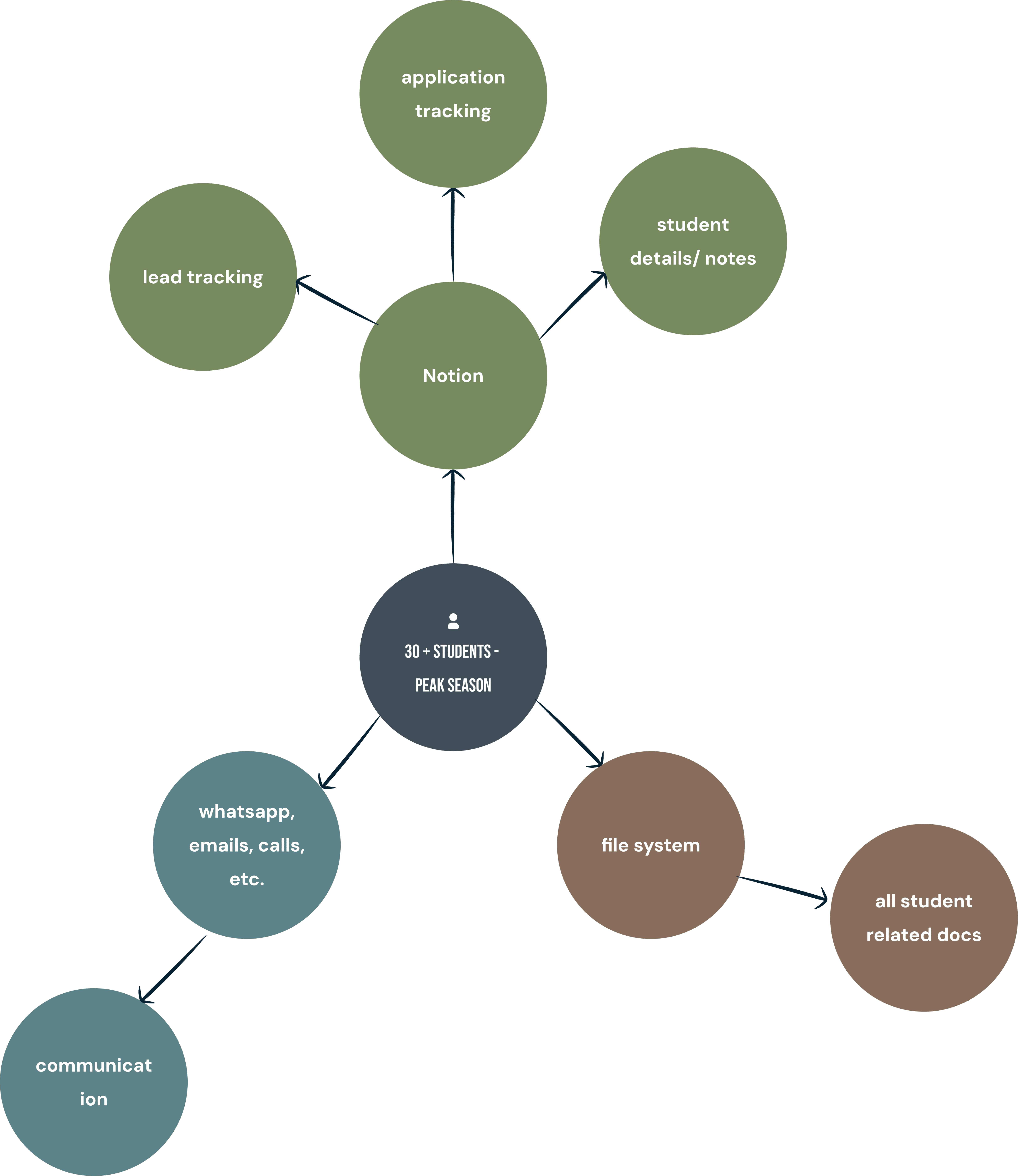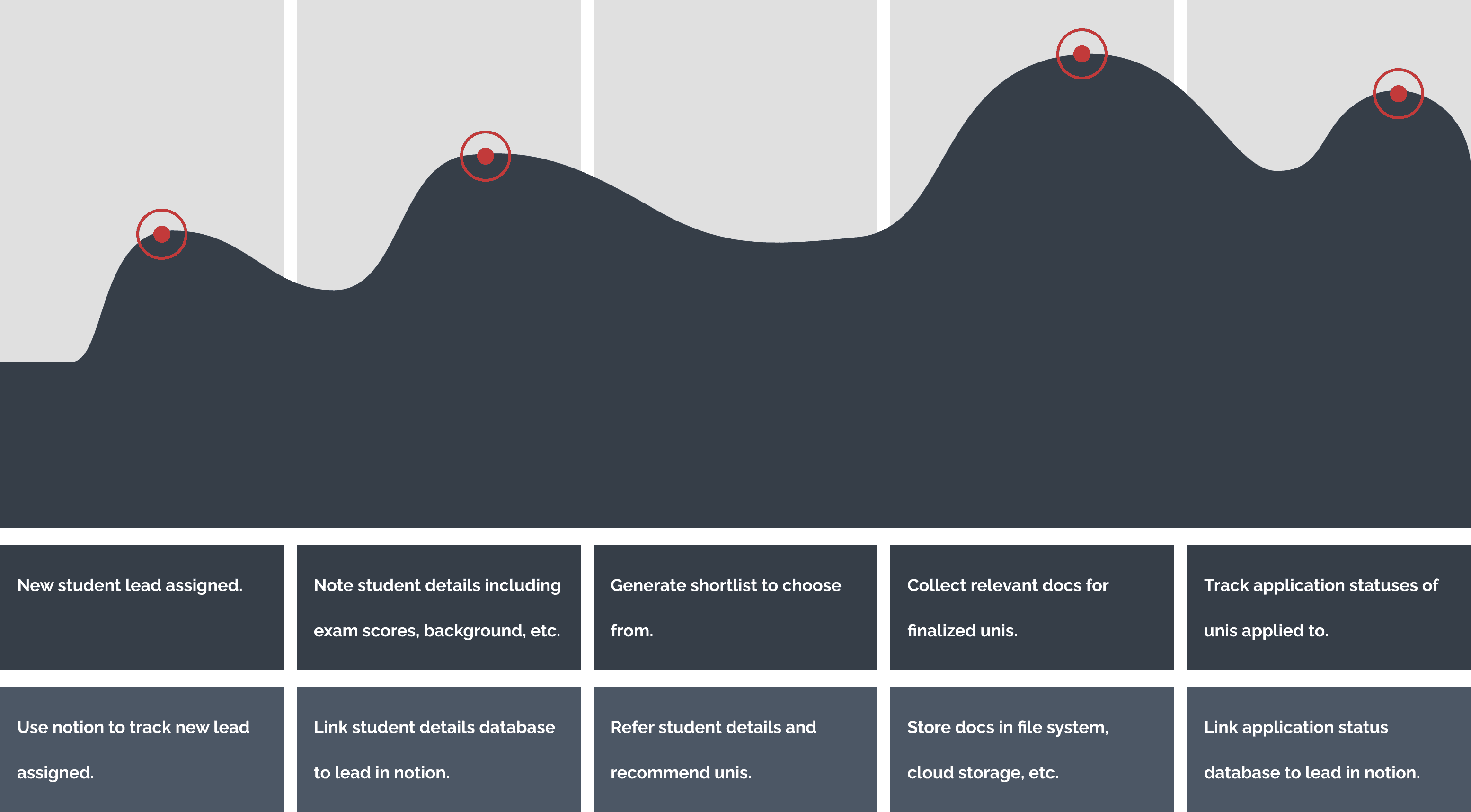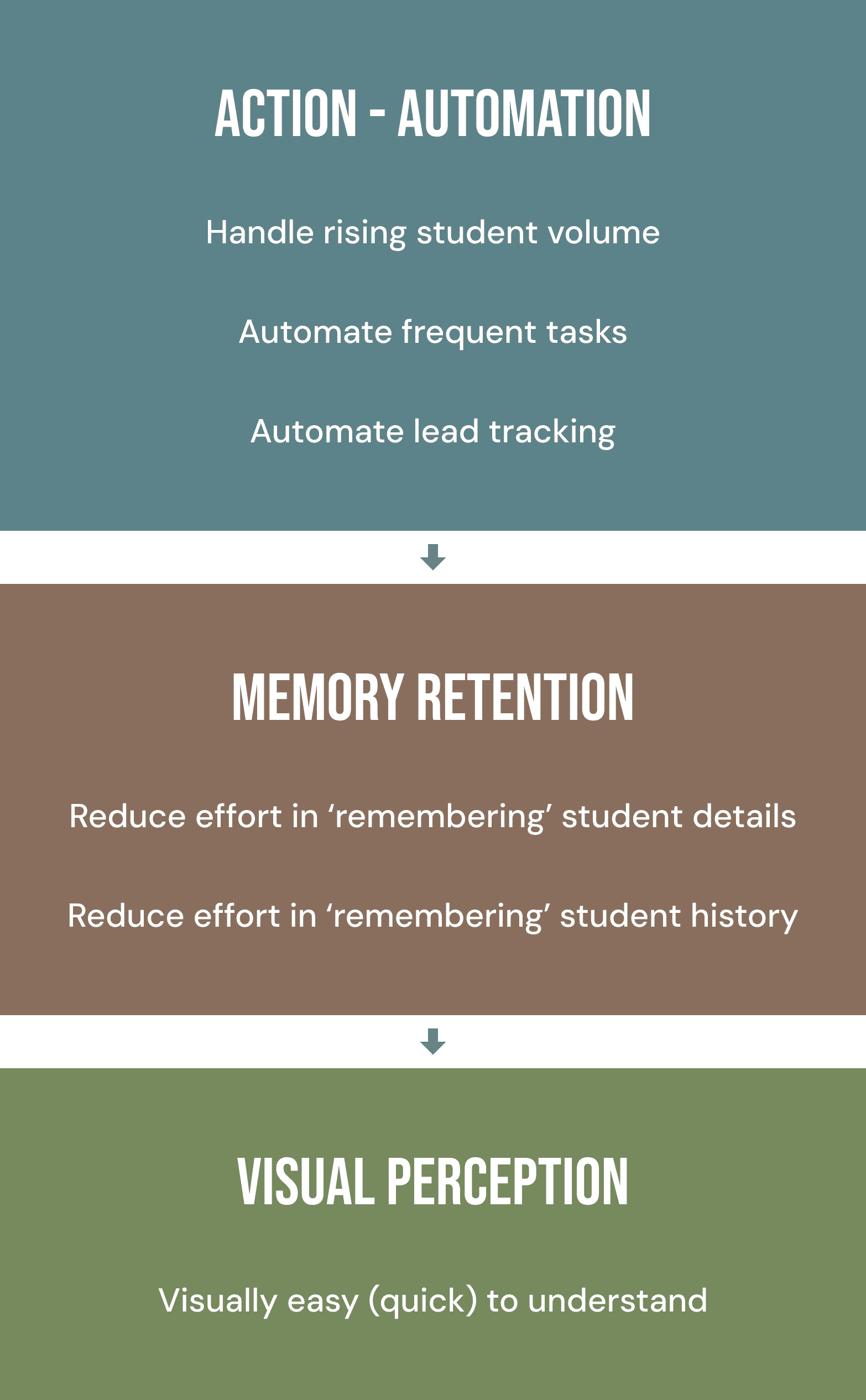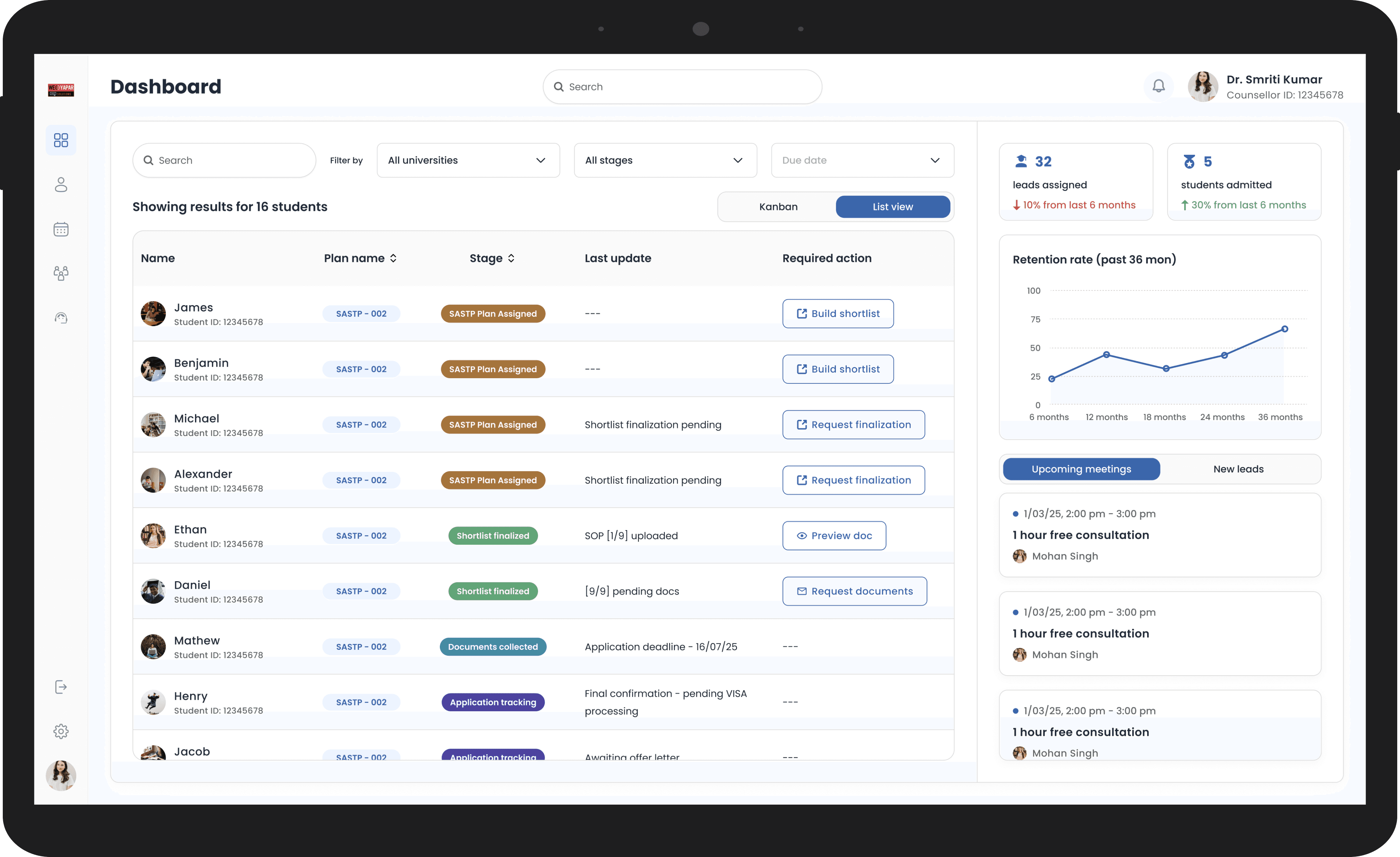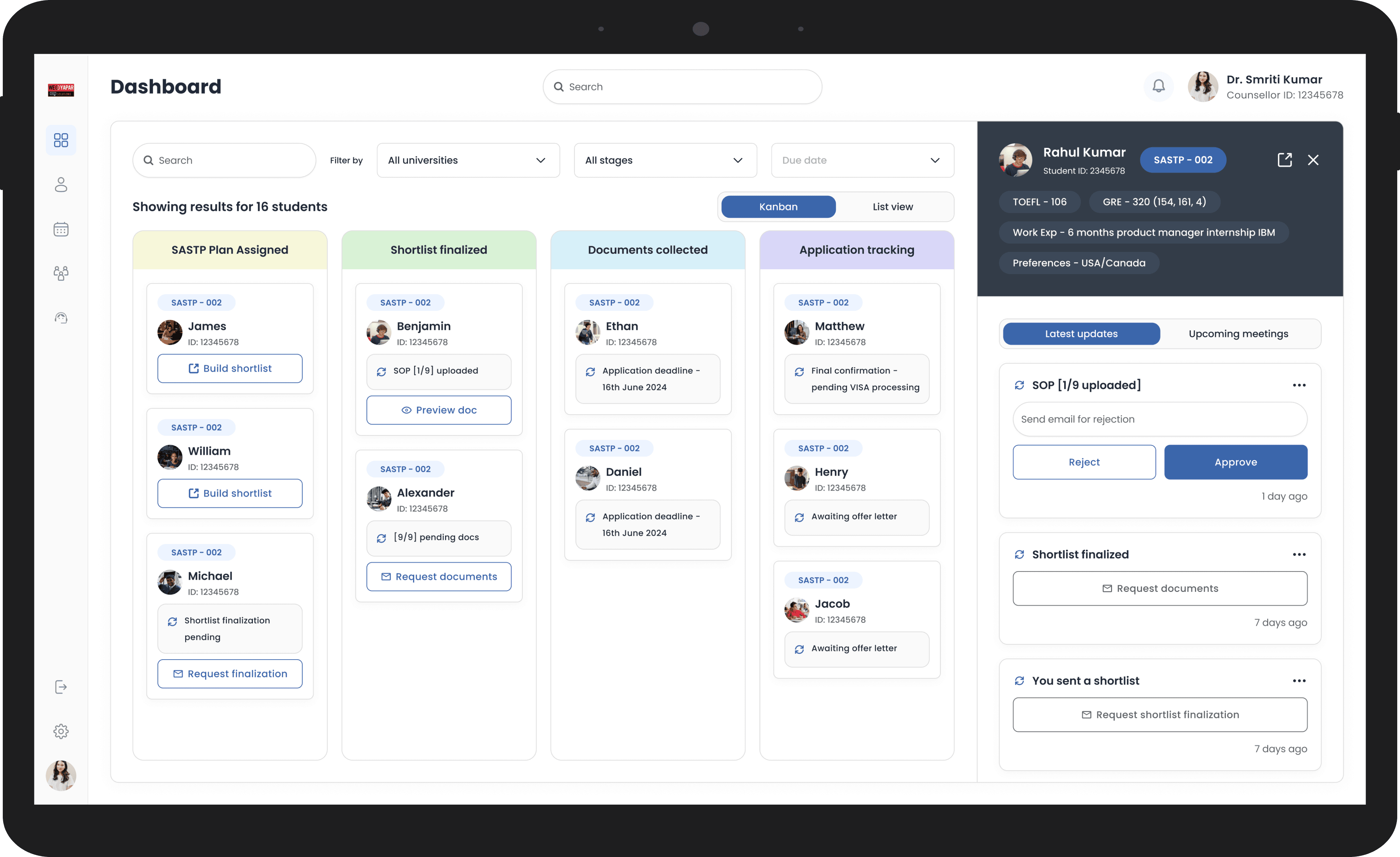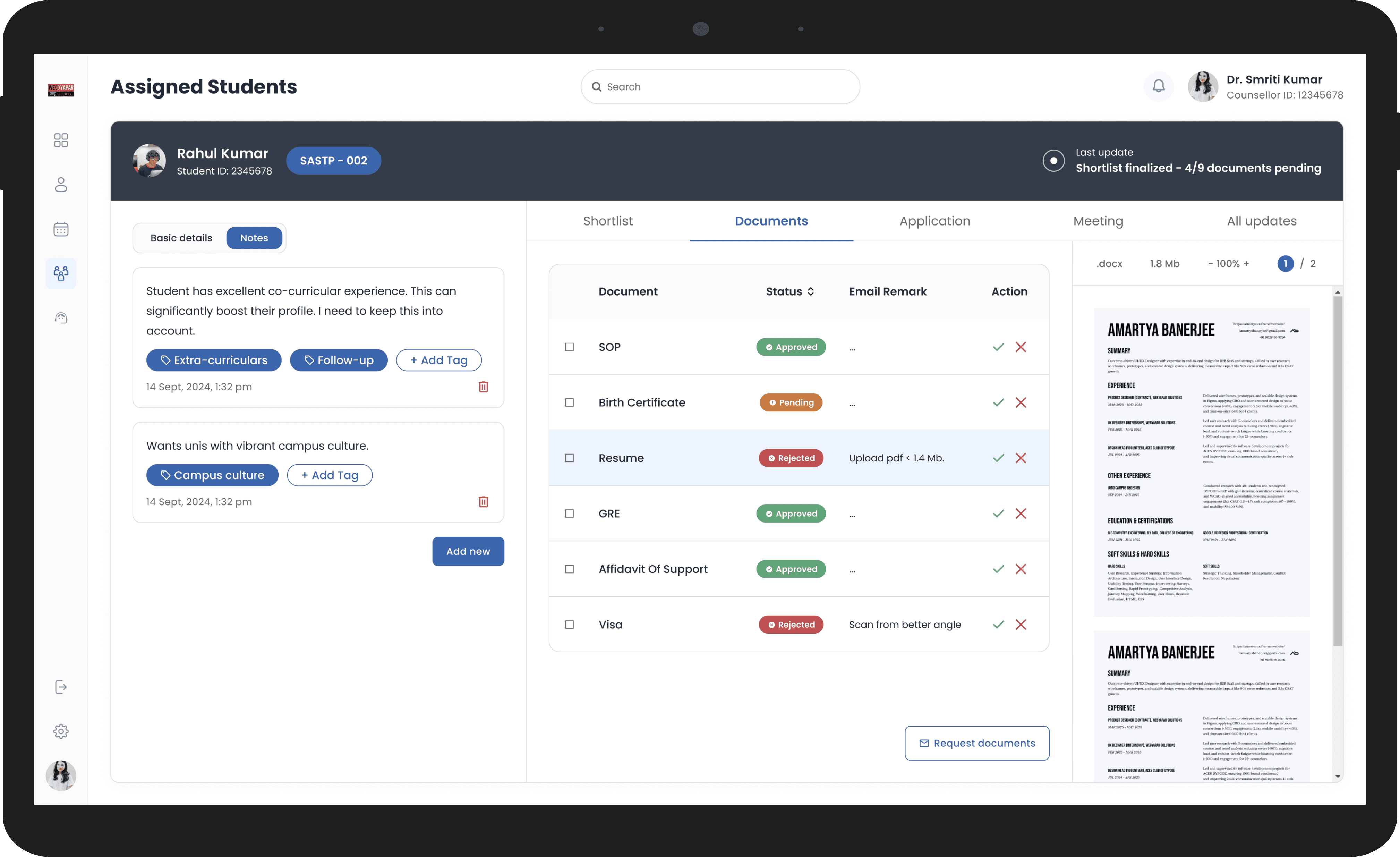reducing counsellor fatigue
UX DESIGNER (ME) + PM + 2x DEVELOPER
8 WEEKS
INTERNSHIP
overview
Webyapar Solutions was pitching a student-management SaaS platform to a study-abroad consultancy facing rapid growth. As student volume increased by over 20% each quarter, counsellors struggled with inconsistent follow-ups, scattered information, and rising complaints.
My goal was to design a workflow that reduces counsellor fatigue and maintains consistency even as the number of students scales.
user research
shadowing counsellors
The PM and I spent several hours shadowing counsellors during actual work. We watched their screens, listened to calls, and documented the steps they took to manage each student.
research finding
inefficient tool set
Counsellors juggled disconnected systems, causing cognitive load, slower decisions, and more errors.
Key takeaway
counsellor journey map
The counsellor journey is fragmented across tools, forcing constant context switching to move a single student from lead to application tracking.
how might we
We create an experience that helps counselors track, manage, and act on an increasing volume of students while driving efficiency and reducing cognitive load.
the 3 pillars
design principles
I grounded the solution in three principles to fix the workflow gaps. Perception: Make data easy to scan. Retention: Stop counsellors from having to memorize student history. And Automation: Let the system handle the heavy lifting of tracking leads, rather than relying on manual entry.
solution
dashboard
I designed the dashboard with automated lead tracking and a list view to handle a rising student volume.
solution
dashboard
I ensured quick visual communication via a kanban board and a side panel that communicates the entire student history.
solution
document management
I designed a persistent left side-panel that communicates student details and notes and a document management set that automates frequent follow-ups like rejections, etc.
iterations and failures
failed hypothesis
Initially I also ideated automating the shortlisting stage. Counsellors rejected automating shortlists, so we focused on boosting overall consultancy efficiency instead.
Full-scale chat for communication was too costly, so we focused on the next optimal option - integrating Email API for frequent follow-ups like document rejections, reminders, etc.
Final Outcome
We ran role play sessions where counsellors were given realistic student tasks and were asked how confident they felt in managing student docs, application statuses, etc.
Finally we asked counsellors to rate their confidence on a scale of 1–5 before and after the new design. The average score went from 2.1 to 4.1.
Counsellor confidence increased by 2x
90% fewer errors retaining incorrect info
Amartya is exceptional at converting difficult concepts into useful user interfaces. Strongly recommended for large-scale SaaS projects.
-Mihir Barnwal (CEO Webyapar Solutions)
what i learned
This internship helped me understand the importance of staying closely aligned with cross-functional teams to anticipate and prevent last-minute changes. Doing so helped us realize how a design that incorporated a full-fledged chat feature would be technically unfeasible and be never pushed to development.

